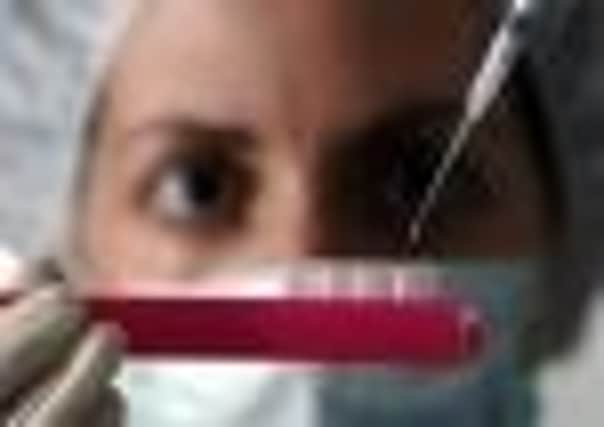£60m fund for Scots life science and technology firms


Cyclacel, the Dundee University spin‑out listed on Nasdaq, and fellow Tayside-based firm Integrated Magnetic Systems, will each receive a slice of the £47.2m being handed out by the Technology Strategy Board (TSB) and the Medical Research Council (MRC).
The money is part of the £180m “biomedical catalyst” announced by Prime Minister David Cameron in 2011 to take developments from the laboratory into the marketplace.
Advertisement
Hide AdAdvertisement
Hide AdIn a separate round of funding from the TSB, Cumbernauld-based Gas Sensing Solutions (GSS) will share in £12m of support for “innovative businesses”.
Willetts said: “The biomedical catalyst is making a real impact by making sure that our innovative businesses in the UK are able to develop new products for the healthcare industry.
“Many great innovations often fall into the ‘valley of death’ between the creation of an idea and the marketplace.
“The catalyst is helping the UK to bridge that gap, so that the best new ideas in healthcare can be transformed into innovative products and services.”
Professor Sir John Savill, chief executive of the MRC, said: “Today’s awards bring the total invested through the biomedical catalyst so far to almost £100m. This substantial support will bring academic researchers together with UK small businesses to work towards a common goal – improving the health of the nation and changing lives through medical research.”
Under the second round of funding from the biomedical catalyst, Cyclacel has received an early-stage award to carry out pre-clinical development work on its “CYC140” agent, which could be used to treat cancer.
Integrated Magnetic Systems will undertake a feasibility study into whether magnetic antibodies can be used in diagnostic tests that take place at the patients’ bedside or the doctors’ clinic rather than in distant labs.
ReNeuron, the Aim-quoted life sciences firm using Glasgow’s Southern General hospital to carry out its stem cell clinical trials with stroke patients, has also received two pots of money from the TSB and MRC to look at expanding its work to include eyes and legs.
Advertisement
Hide AdAdvertisement
Hide AdScott Johnstone, chief executive of the Scottish Lifesciences Association trade body, said: “This is research and development (R&D) funding and that’s of paramount importance for companies like these.
“It’s good to see R&D work being led by companies, rather than just by universities. Success breeds success and so these companies will be able to share their success with others in Scotland.”
The first round of grants from the biomedical catalyst were awarded in August, with Edinburgh-based Roslin Cells receiving a feasibility award and Dundee, Edinburgh and Strathclyde universities winning funding.
Through the TSB’s latest “energy harvesting” funding, GSS will look at whether solar power can be used to run carbon dioxide, temperature and humidity sensors instead of batteries.